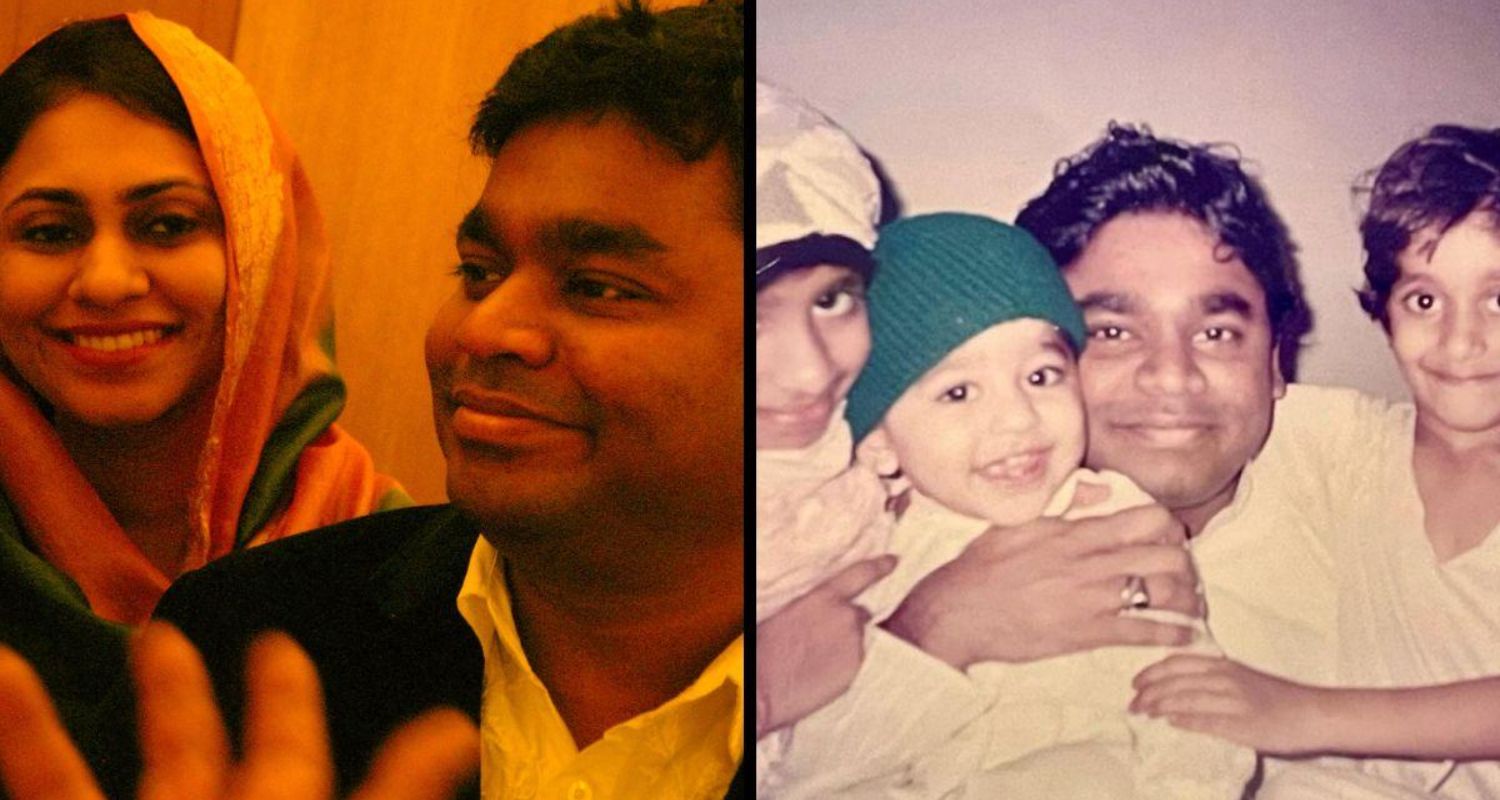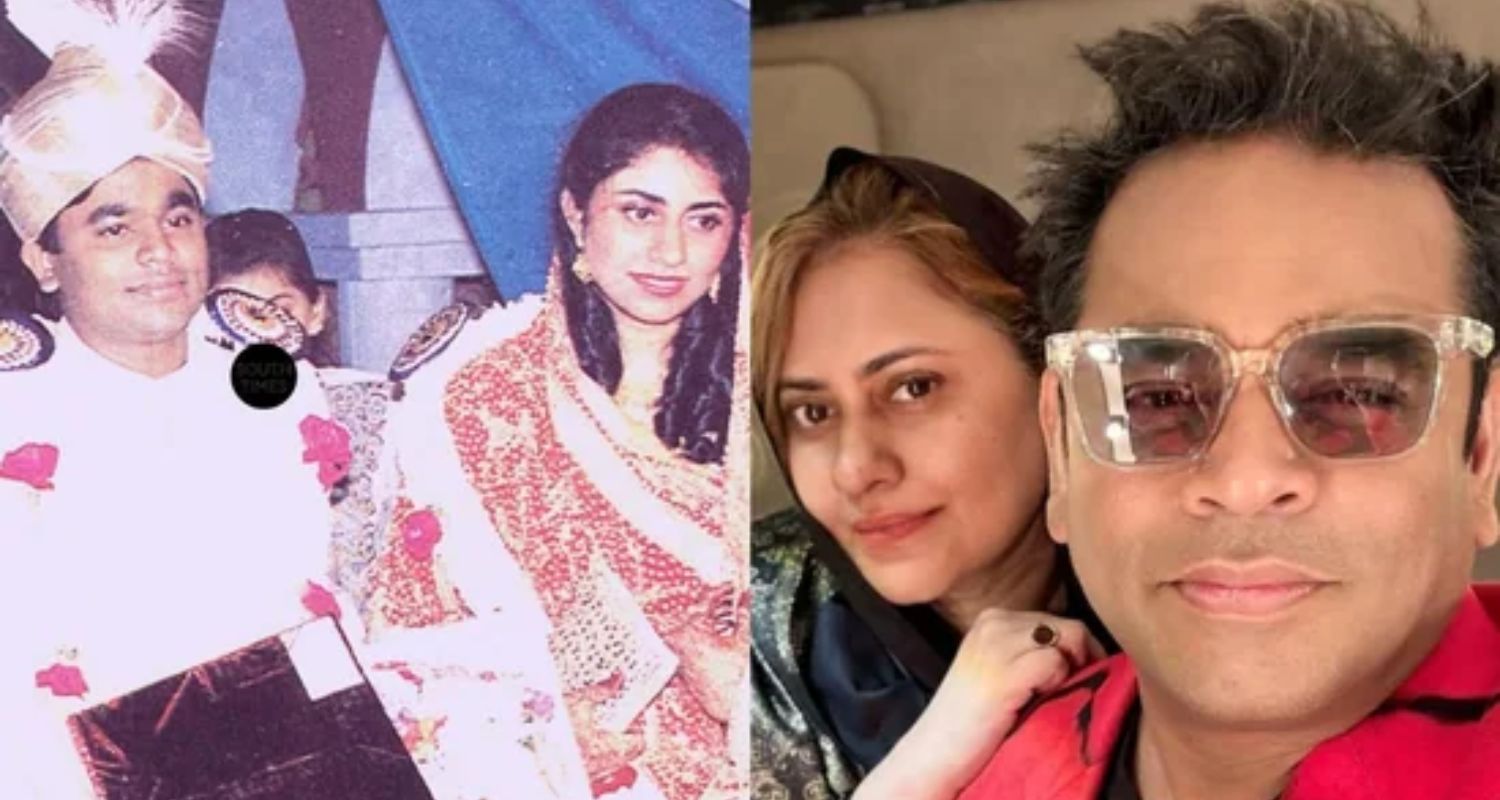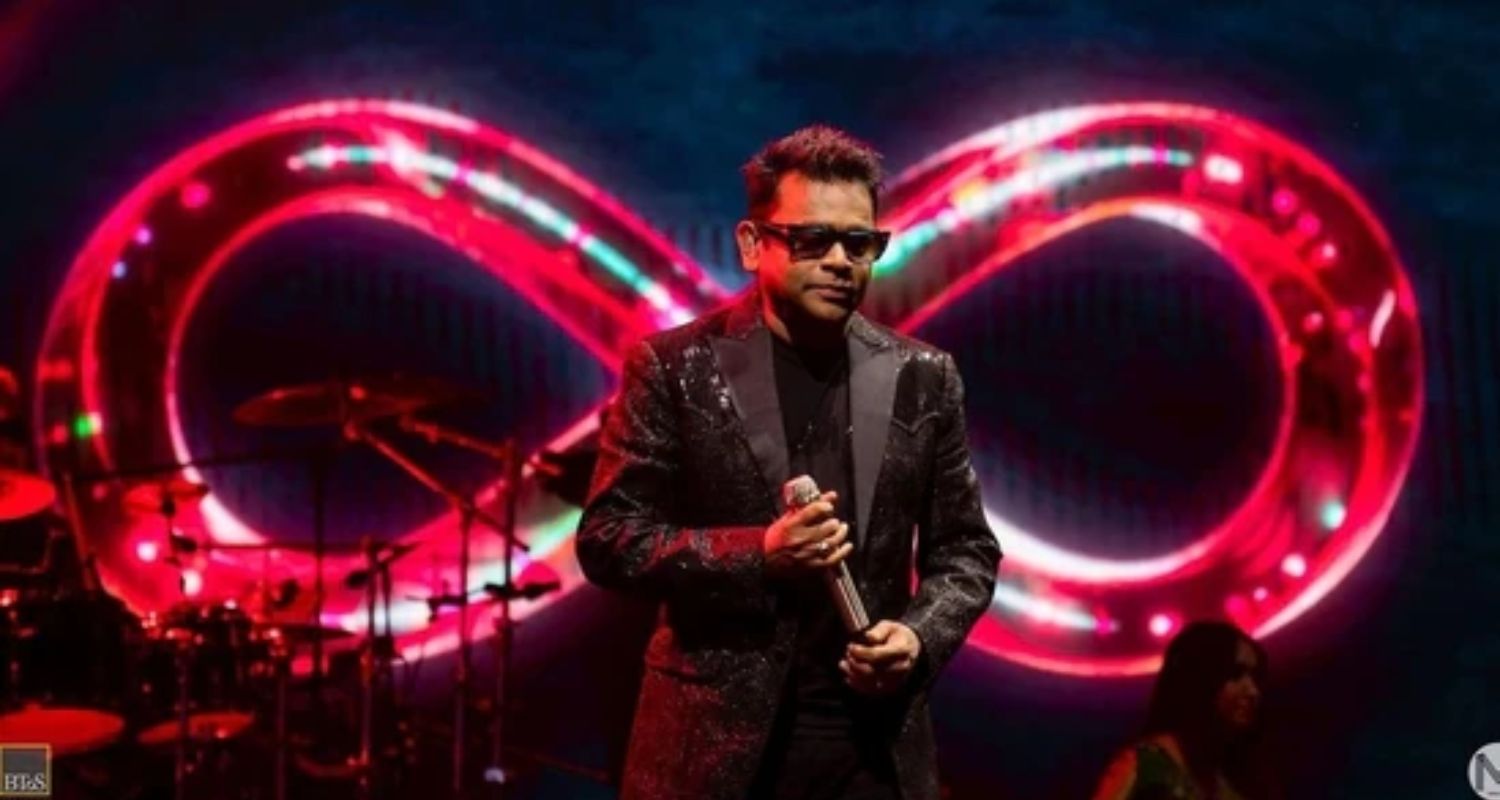Trending:
AR Rahman & Saira Banu divorce: Inside their 29-year bond
AR Rahman and Saira Banu have announced their separation after 29 years of marriage. Amid this bittersweet news, let’s revisit the story of how the couple first met.News Arena Network - Mumbai - UPDATED: November 20, 2024, 03:46 PM - 2 min read

AR Rahman and Saira Banu. Photo credit - X.
In a heartfelt and surprising revelation, Oscar-winning music maestro A.R. Rahman and his wife Saira Banu have announced their decision to part ways after 29 years of marriage. The couple, who have three children—son A.R. Ameen and daughters Khatija and Raheema Rahman—shared the news through their legal representatives on Tuesday.
The announcement, issued by Vandana Shah and Associates, reflected the emotional gravity of their decision.
The statement read:
"On behalf and instruction of Mrs. Saira and her husband, renowned musician Allahrakka Rahman (A.R. Rahman), Vandana Shah and Associates issue the following statement regarding the couple's decision to part ways."
A marriage that withstood time but not emotional strain
While the bond between A.R. Rahman and Saira Banu was marked by love and respect, the couple acknowledged the challenges that led to their separation.
According to the statement, their decision was made after enduring significant emotional strain. The announcement further elaborated:

“After many years of marriage, Mrs. Saira has made the difficult decision to separate from her husband Mr. A.R. Rahman. This decision comes after significant emotional strain in their relationship.”
Later, A.R. Rahman took to X (formerly Twitter) to share a heartfelt note. In the post, he described the experience as “shattering” and thanked friends and well-wishers who respected their privacy. Interestingly, Rahman used the hashtag #divorce in his post, which added a modern twist to this otherwise deeply personal revelation.
The love story of A.R. Rahman and Saira Banu
Born in Kutch, Gujarat, in December 1973, Saira Banu is seven years younger than A.R. Rahman. Coming from a culturally rich upper-middle-class family, she is also known for her philanthropic contributions in education, healthcare, and community development. Their relationship began in 1994 through an arranged marriage setup, a common tradition in India.
The first meeting (1994)
Their love story started serendipitously when Rahman’s mother, Kareema Beegum, and sister Fathima met Saira’s family during a visit to a shrine in Chennai. On January 6, 1995, Rahman met Saira for the first time on his 28th birthday. Reflecting on their initial meeting, Rahman was captivated by Saira’s beauty and gentleness. Shortly after, they began communicating over the phone, and Rahman proposed to Saira.
Marriage and family Life (1995)
The couple tied the knot on March 12, 1995, in a ceremony held in Chennai. Notably, the venue later became the site of Rahman’s iconic AM Studios, established in 2006. Reminiscing about their wedding day, Rahman humorously shared how his face ached from maintaining a fixed smile throughout the long ceremony.
While their marriage was rooted in love, the couple faced cultural differences. Rahman, a Tamilian from South India, and Saira, a Gujarati, had to navigate adjustments within their respective families. In an interview, Rahman explained how his mother’s protectiveness posed initial challenges but noted that the birth of their eldest daughter, Khatija, in 1995 brought a sense of harmony. The couple later welcomed A.R. Ameen and Raheema into their lives.

A legacy of love and mutual respect
Throughout their nearly three-decade-long marriage, A.R. Rahman and Saira Banu kept a relatively low profile, focusing on their family and Rahman’s illustrious music career. Despite the emotional weight of their divorce, the couple has expressed immense respect and gratitude for the time spent together.
Their joint statement requested privacy during this challenging period:
“We humbly ask for understanding and respect from the public as we navigate this difficult chapter in our lives.”
A.R. Rahman’s use of the hashtag #divorce in his social media post has sparked conversations, adding a contemporary dimension to their story. The announcement has drawn widespread attention, with fans and the media expressing shock and empathy for the family.
The end of an era
The news of A.R. Rahman and Saira Banu’s divorce marks the end of a cherished chapter in their lives. While their separation is deeply personal, their journey as a couple has left an indelible mark on those who admired their bond.
With mutual respect as their guiding principle, both Rahman and Saira Banu continue to prioritise their family’s well-being, navigating this new phase with dignity and grace.
AR Rahman sets record with 7th National Award, becomes most honoured music director in history
The 70th National Film Awards were announced, honouring films released in 2022, and AR Rahman’s name stood out among the winners. He won the National Award for Best Music Director (Background Score) for his work on Mani Ratnam's Tamil blockbuster Ponniyin Selvan - Part 1.
This victory marks Rahman’s seventh National Award, making him the most awarded music director in India. Composer Ilaiyaraaja follows closely with five National Awards, while Vishal Bhardwaj and Jaidev have four and three wins, respectively.

Rahman began his career in Tamil cinema with Mani Ratnam’s Roja in 1992, which also earned him his first National Award. He later won for Minsara Kanavu (1996), Lagaan (2001), and Kannathil Muthamittal (2002). By 2000, Rahman was composing music in multiple languages, and his fame extended internationally.
He won an Oscar, a Golden Globe, and other global accolades for Slumdog Millionaire and 127 Hours.
After a 15-year gap, he returned to the National Awards spotlight in 2017 with wins for Kaatru Veliyidai and Mom. His latest win for Ponniyin Selvan - Part 1 cements his legacy as India's most celebrated music director.
The Mani Ratnam connection
Rahman’s collaboration with Mani Ratnam has been a cornerstone of his career. Their journey began with Roja, where Rahman’s unique sound captivated Ratnam.
The director once remarked how Rahman brought freshness and innovation to every project. Of Rahman’s seven National Awards, four were for Ratnam’s films. Rahman considers Ratnam both a mentor and a brother, and their creative partnership continues to evolve.
The signature style of AR Rahman
When Roja was released, Rahman’s music introduced a revolutionary blend of Indian and Western styles, delighting audiences. His compositions often mix elements like jazz, reggae, pop, and Sufi with traditional Indian sounds, creating a unique musical signature. This approach not only transformed Tamil and Indian film music but also brought Rahman global recognition.
A Global Icon
From his modest beginnings in Madras, Rahman has gone on to perform worldwide and collaborate with top artists in Hollywood and beyond. He continues to inspire musicians, advising them to believe in their unique talents and pursue their passions.
As Rahman says, “No one else can be you,” a sentiment reflected in his unparalleled contributions to music.
